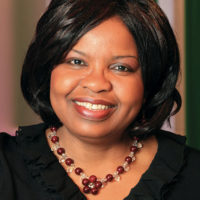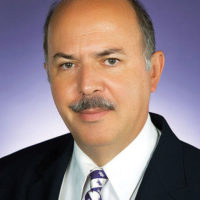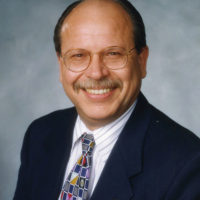What date (or event) most changed the course of history?
Eight faculty members answer the question.
What date (or event) most changed the course of history?
Eight faculty members answer the question.
 Ralph Carter
Ralph Carter
professor
political science
Part of me wants to say the Crusades, which are often cited as proof that the Christian West wants a war on Islam. However, the real date is Aug. 6, 1945, the dawn of the nuclear age, which continues to threaten us all.
 Amiso M. George
Amiso M. George
associate professor
strategic communication
The discovery of ancient news release via the Rosetta Stone in 196 B.C., the Catholic Church’s use of “propaganda” in the Middle Ages to spread Christianity, and in the United States, the well-documented propaganda efforts of the revolutionaries, such as the Boston Tea Party and other key symbols, to change the course of the American Revolution, exemplify early public relations. However, the appointment in 1914 of ivy lee by the Rockefellers marked a watershed in modern public relations and history. Today, public figures, organizations, businesses and countries use public relations efforts to tell their stories and repair damaged reputations.
 Robert Leone
Robert Leone
J. Vaughn and Evelyne H. Wilson Chair
marketing
My first thought was the printing press, invented by Gutenberg in the 1400s. For the first time, a large number of people had access to literature. It was really the foundation for education. However, I will go with the industrial revolution, which led to changes in almost every aspect of daily life. The shift to steam power and machine production led to dramatic changes in the manufacturing processes. It also improved quality of life due to the positive impact on employment and the corresponding reduced cost of consumer products.
 Sarah R. Robbins
Sarah R. Robbins
Lorraine Sherley Chair
literature
If we think in terms of the 20th century, we’d likely want to look at the two World Wars, both of which certainly shifted global political power in crucial ways. We might point to the start of World War I with the assassination of Archduke Ferdinand or the invasion of Normandy by the Allies, surely a key turning point in World War II. Turning to a more “social history” perspective, though, where an “event” could actually be a more sustained shift in cultural practices going beyond one date, we might highlight education becoming accessible across social class divisions via models like the common school in 19th-century America or available for an increasing number of young girls in developing countries today.
 Blaise Ferrandino
Blaise Ferrandino
professor
music theory and composition
So much has happened in the last 50 to 60 years. I don’t think an event such as the lunar landing on July 20, 1969, should be considered lightly. The world, the entire world, changed on that single day. I am not sure there had ever been an event before or since which united almost all of humanity in a common sense of awe, purpose and place in the scheme of things. Its long-term impact remains to be seen of course, but if there was ever a day when differences were put aside and limitless possibility was embraced, it was that one.
 Chris Watts
Chris Watts
director
Davies School of Communication Sciences & Disorders
While so many events have altered the course of history, one seminal event in the recent past was the detonation of an atomic bomb over hiroshima (followed by a subsequent detonation over Nagasaki). This event facilitated the end to one war (World War II) and marked the beginning of a new war (the Cold War). By ushering in the age of nuclear armament, it altered the shape of geopolitics and international military alliances in a way that still reverberates to this very day.
 Stathis Michaelides
Stathis Michaelides
W. A. Tex Moncrief Chair
engineering
The sea battle of Salamis, 480 BC: The combined fleet of Greek city-states defeated the fleet of the Persian Empire, repelled the Persian invaders and preserved the freedom and democracy in Greece. As a result, the Greeks developed the arts and sciences that were spread by Alexander 150 years later, and became what is now known as the Hellenistic Civilization. It is because of this civilization that we have the roots and terms for most of our academic disciplines (history, biology, anthropology, pedagogy…), many of our democratic institutions (the U.S. Senate included) as well as the word “Christian” that defines our university.
 Don Mills
Don Mills
distinguished professor of educational leadership
My initial thought was discovery of the DNA double helix, which led to unraveling the human genome and changed our understanding of biology, medicine and disease. It is the building block of life. Recently, a student answered that question simply and profoundly – “alphabet.” Without alphabet, broad scale communication would be impossible. No printing, no Internet, no recording of inventions or discoveries. To be truly human is to communicate our thoughts, loves, hopes and dreams – and to receive in return. If DNA is the foundation of life, the alphabet is the foundation of humanity. I am indebted to Emily for her insight.

Your comments are welcome
1 Comment
These Professors do not have a clue as we all know it was April 5, AD 33. this day changed the course of
history, more than any other day before or after, That singular event was the resurrection of Jesus Christ of Nazareth, what a glorious day for human kind.
Related Reading:
Campus News: Alma Matters
Giddyup Gang
The TCU Rangers’ spirit shows up across sports, local events and longstanding Fort Worth traditions.
Campus News: Alma Matters
From Applicant to Accepted
Learn about the admission counselor’s role in guiding future Horned Frogs.